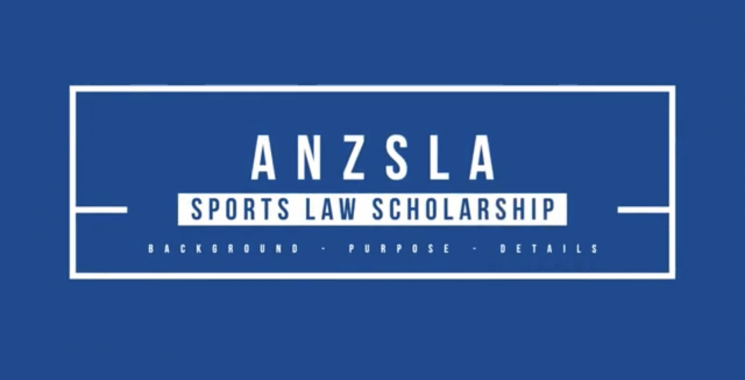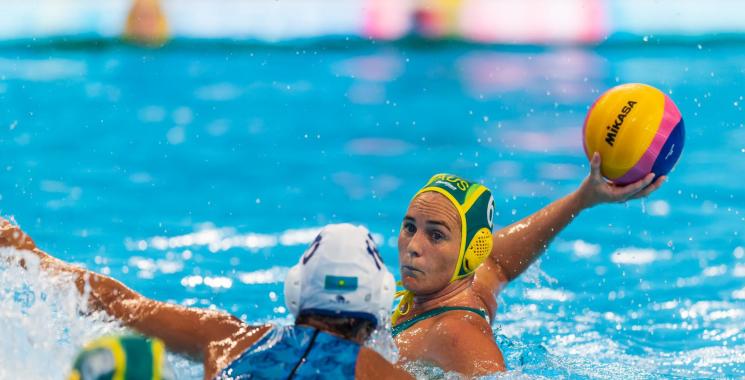The Australian and New Zealand Sports Law Journal 2017-2018
The 2017 2018 Australian and New Zealand Sports Law Journal can be accessed at the bottom of this page. It contains the following articles:
Germline Doping for Heightened Performance in Sport
Tournas, Lucille; Johnson, Walter; Maynard, Andrew and Bowman, Diana
In recent years, gene editing techniques such as CRISPR-cas9 have begun to enable the genetic makeup of organisms – including humans – to be precisely designed and engineered. Human embryonic gene editing is both nascent and highly contentious, with many within the scientific community cautioning against its use. However, given the long history of new technologies being used to confer a competitive advantage in sport, it is likely only a matter of time before human embryonic germline editing is explored to heighten athletic performance. As the technology develops, there is an urgent need to better-understand the legal landscape around germline doping to ensure the safety and wellbeing of athletes, and the integrity and value of the sports they participate in.
What Makes an Athlete ‘Female’? Issues with the Proposed Hyperandrogenism Regulations in Elite Athletics
Tsai, Deborah
The recent proposal by the International Amateur Athletics Federation (‘IAAF’) to reinstate the Eligibility Regulations for the Female Classification (Athletes with Differences of Sex Development) (‘Hyperandrogenism Regulations’) indicates a resurgence in the sex verification issues that have plagued women’s sport since the dawn of the modern Olympic era. This article provides a brief review of sex verification in sport, and against that backdrop, examines the scope and application of the Hyperandrogenism Regulations. It questions the legitimacy of the IAAF’s concerns, considering the regulation’s scientific basis, the associated human rights issues and broader factors affecting elite athletic performance. The conclusion is that due to these concerns, the Hyperandrogenism Regulations are unlikely to withstand a challenge at the Court of Arbitration for Sport (‘CAS’), predominately due to the lack of scientific evidence substantiating the IAAF’s claims.
Tolerance is Tricky Business: Israel Folau at the Court of Arbitration for Sport and the Moral Case for the Protection of Athlete’s Free Expression
Nikou Madalin, Elle
Broadly-worded and subjectively interpreted ‘disrepute’ or ‘morals’ clauses are now ubiquitous in sporting contracts. These clauses endeavour to prohibit ‘bad behaviour’ and impose sanctions for reputational harm in cases of public backlash, outcry ridicule or scandal – including where an athlete makes comments incompatible with a sport’s governing body’s (or even its sponsor’s) brand and political positioning. The sacking of star rugby player and fundamentalist Christian Israel Folau over his social media activity has ignited fierce debate over free expression, freedom of religion, and how far employers and corporate interests can and should be allowed to encroach on these rights. Whilst Folau’s case plays out in Australian courts pursuant to domestic employment law, it is probably only a matter of time before a similar case finds itself before the Court of Arbitration for Sport. This article cites the circumstances of Folau’s case as a case study to demonstrate why disciplinary sanctions imposed on an athlete in such a matter should be considered inconsistent with Swiss public policy under Article 190(2)(e) of the Swiss Federal Code of Private International Law. In so arguing, the author contends that the legal and moral case should lead governing bodies to refrain from disciplining athletes in circumstances where to do so unduly or unjustifiably violates athletes’ freedom of expression – particularly in a way that discriminates on the basis of his or her religious or political views. In this regard, the difference between a sport’s governing body and other types of employers and contracting parties is highlighted. If an impasse has been reached between freedoms of religious or political expression on the one hand and the rights of historically marginalised and vilified groups on the other, then it is appropriate that a democratically elected legislature – not an unelected handful of officials or their corporate stakeholders – breaks the deadlock.
Pliant Bodies: Generic Event Laws and the Normalisation of the Exceptional
James, Mark and Osborn, Guy
This article focuses on event management legislation, specifically generic legislation, and argues for a more measured, collaborative and mutual approach to its creation. The emergence of generic major event management legislation is the illogical endpoint of the previously iterative development of event-specific protective laws. The protections offered to international sports federations by such pliant states are increasingly wide-ranging and often subvert conventional parliamentary oversight. By analysing the problems caused by this evolving phenomenon, it will be argued that the relationship between rights holder and host nation needs to be recalibrated. Using principles derived from relational contract theory, a mutually beneficial, reciprocal, approach is proposed as one possible method to aid recalibration.
‘The Legal Dope’ – Evidential and Structural Abuses of Therapeutic Use Exemptions : Why WADA Needs Strong and Unified Reform to Ensure Best Practice
Samartzis, James
The world of doping is flourishing. Those who wish to dope are finding new innovative and technological ways to bypass existing legal frameworks. These attempts are also causing widespread reproach globally. Therefore, it is incumbent on the premier antidoping body, WADA, to take proactive action to address its structural issues that provide mechanisms for athletes and their associates to abuse the system. The imperative of this action is heightened by the explosion of leaked material, circulation of private athlete medical information, and debated commentary from many parties including governments, medical professionals, and athletes. Reform is the only way forward, and must include changes to governance, regulation, compliance, and operation. It is the hope of this article that legal and medical experts begin working closer together to flesh out the issues in the TUE process and bring about reform.
Changing the Game: The Legal Framework for the Law of the Game, Management of Human Performance Data and Related Safety Considerations in Women’s Professional Sport
Didulica, John
This article discusses the responsibility of codes of football to adapt and evolve the medical, human performance and/or regulatory frameworks to properly accommodate the emergence of elite women competitions within their traditionally male dominated sports. It further considers whether the historic model of male sport built over generations – through the development of sporting rules and human performance protocols – needs to be reconsidered for girls and women to ensure that the wellbeing of those athletes recruited to compete as professionals is safeguarded to the appropriate legal standard. In undertaking this analysis, this article considers the following: the professional characterisation of selected women’s professional sports; the historic health challenges for women within elite sport; existing human performance protocols within professional Australian sport; and an analysis of the legal, ethical and regulatory framework for the conducting of sport.
Of Ball Tampering and Governance: Cricket Australia and the Legitimacy of a Sport’s National Governing Body
Freeburn, Lloyd
This article examines the status of Cricket Australia (‘CA’), Australia’s governing body for cricket. CA claims and exercises significant regulatory powers over the sport and over participants. Yet little attention is paid to the basis of that power. In particular, as a private body, by what justifiable right does CA claim power? It is argued that CA exercises de facto power far removed from the conventional conception of sports governing bodies as voluntary associations acting through private law contracts. Moreover, the governance structure of CA is neither representative nor accountable. It is therefore not legitimate, and its structure must be reformed.
The Interpretation and Application of Article 10.11.1 of the World Anti-Doping Code in Non-Analytical Violation Proceedings: Substantial Delay and the Discretion to Backdate the Starting Date for a Sanction
Wroe Sarah
Article 10.11.1 provides a discretion to backdate the commencement of a period of ineligibility where there has been substantial delay in aspects of doping control. This discretion has been applied in many cases in New Zealand recently in proceedings involving nonanalytical violations. In considering the Article and the comment that accompanies it, their purpose and history, this article proposes that a proper interpretation of what is meant by substantial delay requires a finding of prejudice or unfairness to the athlete as a result
of the delay. Only in exceptional circumstances will this be present in non-analytical violation proceedings.


